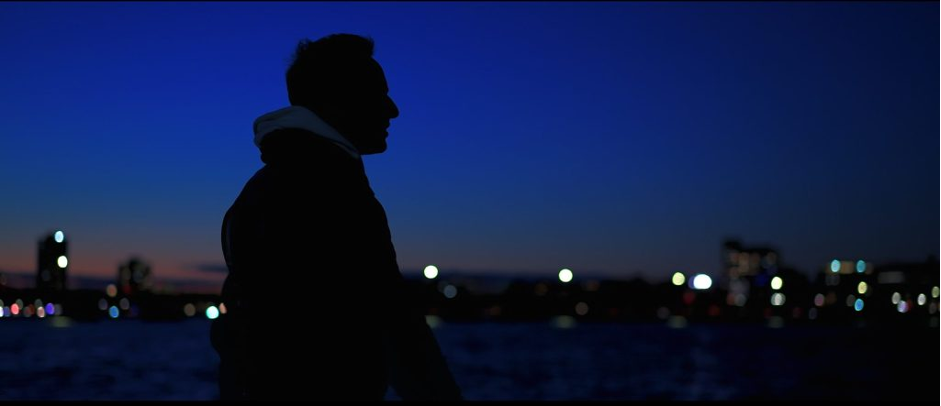Last Updated on February 26, 2024
Viraj Bahri has a long list of accomplishments as a singer-songwriter. Most recently, he was part of the Grammy-nominated album “Shuruaat” in collaboration with the Berklee Indian Ensemble.
In addition to his acclaim here in the US, Bahri was also invited to perform and arrange music for a Buddhist chant for His Holiness The Dalai Lama in Delhi. He was the only performer at this event, and the performance was lauded by notable Indian business leaders, politicians, and industrialists.
Bahri also performed as the lead singer for a recent recording of the Indian national song, “Vande Mataram Restrung”, which has garnered significant popularity on social media. His work on the song also earned him two awards at the Artist Aloud Awards.
Something Bahri talked about in detail during our interview was being chosen by Sony Music India to direct, produce, and perform as lead singer for the official commercial for Berklee College of Music.
Whether you’re a singer, musician, or just a listener, we hope you’ll join us for a fascinating interview with a highly accomplished singer and songwriter.
Welcome to LNGFRM. We’ve been looking forward to chatting with you.
I’m happy to be here.
Congratulations on being part of the Grammy-nominated album “Shuruaat” in collaboration with the Berklee Indian Ensemble. Can you discuss your work on this project?
Being a part of a Grammy-nominated album was a surreal moment. Moments like these are extremely reassuring and motivating. I am extremely grateful for having support from my mentors, family, and friends. “Shuruaat” was a massive endeavor that the Berklee Indian Ensemble set out on. It had some of the finest musicians, producers, and engineers to begin with. Soon, we had other collaborating artists that came along and made this project even more special.
I think the biggest challenge in such a vast project is planning and scheduling. Once that’s taken care of, collaboration is always fun and filled with surprises. The album featured legends, including tabla master Zakir Hussain, singers Shankar Mahadevan and Vijay Prakash, and Bollywood icon Shreya Ghoshal. It really is a full spectrum of what the ensemble has created as a team, as a family, over the last 10 years. This was also the first time a Berklee album was nominated for a Grammy.

So how did you get involved with the Berklee and Sony Music India commercial?
The Berklee X Sony Music commercial was a dream project for me. Bringing together the diverse community and culture at Berklee with the top Indian music label, Sony Music India, was an exhilarating experience for me. In the last four years, I had been recognized by Berklee and Sony individually on a number of my projects for the unique writing and production styles I was presenting in my work.
In my very last semester, I had a script and concept for a Berklee promotional video that really touched the president, Erica Muhl, when she heard it. This is when she asked me to lead this project and execute it exactly how I had envisioned it. Her support and belief in me were extremely motivating and reassuring.
How did Sony respond to the finished music video?
Once the project was complete and Sony Music India saw it, they were eager to re-release and distribute the project on their platform with over 50 million subscribers. The project went on to have over 2 million views, was featured in various newspapers, and also ended up on radio stations throughout the country.
Aside from the recognition mentioned above, you’re well-known in India for singing the national song that was released by two very well-known labels. Can you tell us how this project came about?
Vande Mataram is the national song of India. Written in Sanskrit ‘Vande Mataram’ means ‘I bow to thee, mother’ a poem from the famed novel ‘Anandamath’ written in Bengali and Sanskrit by Bankim Chandra Chattopadhyay in 1882. It is a tune every Indian knows by heart. Even though this tune is known by all, it has always been used in the context of respecting the motherland.
In 2014, there was a brutal rape case in the capital, New Delhi, called “Nirbhaya”. This left the nation mourning and in shock. The country was in despair and the people were angry. With Vande Mataram Restrung, our objective was to reach the youth of India through a contemporary version of the National Song with a refreshed interpretation.
The refreshed interpretation was all about how we need to respect the women, the mothers of us all, before we talk about respecting the land. Being the lead singer on this project was a huge honor and responsibility. I am forever grateful for being chosen. In a way, I feel that I was representing the youth of my nation. This project continues to be very close to my heart.

What is the biggest challenge of leading a large ensemble vs. serving as the main performer for a big event, such as you did when you performed for the Dalai Lama?
Personally, I love doing both. Leading an ensemble and being the lead performer are both exciting in their own way. The biggest challenge I experience with a large ensemble or crew is the planning and scheduling that comes with it. Having a team dedicated to doing just that makes things a little simpler, but it is definitely challenging. Apart from that, collaboration is always my favorite part of any endeavor.
On the other hand, being the lead is also very similar in a sense. There is nothing without teamwork. I don’t think of being the lead as a solo act because it is really not. You still need to work with your team and become one, and only when everyone is coordinated perfectly can the act shine.
Thank you for taking the time to speak with us. We know you’re very busy these days.
Thank you for reaching out. I could talk about music for hours.

